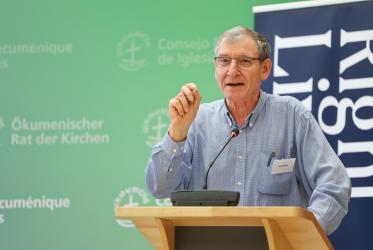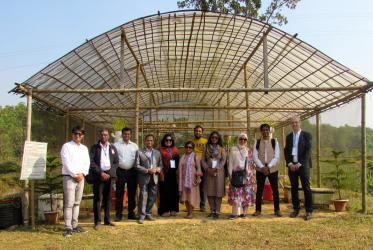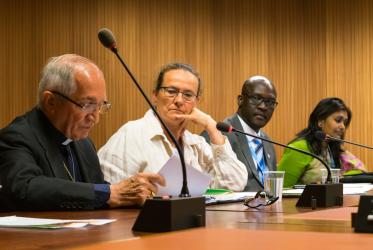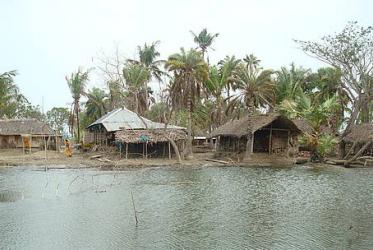Displaying 1 - 18 of 18
Climate crisis fuels existing water injustice
27 October 2021
Churches should use their voice on climate change
26 February 2020
CCIA meets in Brisbane with focus on Pacific regional priorities
19 February 2020
Church response to Australian bushfires hinges on preparation
07 January 2020
Workshop in Bangladesh links climate, economic justice
07 February 2019
All pilgrim routes lead to COP24
11 December 2018
“Overcoming economic injustice” vision of WCC’s Athena Peralta
23 February 2017
Consultation considers right to food in context of climate change
15 December 2015
Climate pilgrimage toward COP21 pauses in Geneva
05 November 2015
Prayers, reflections and action during “Time for Creation”
15 September 2014
Time to pray for God’s creation
02 September 2013









